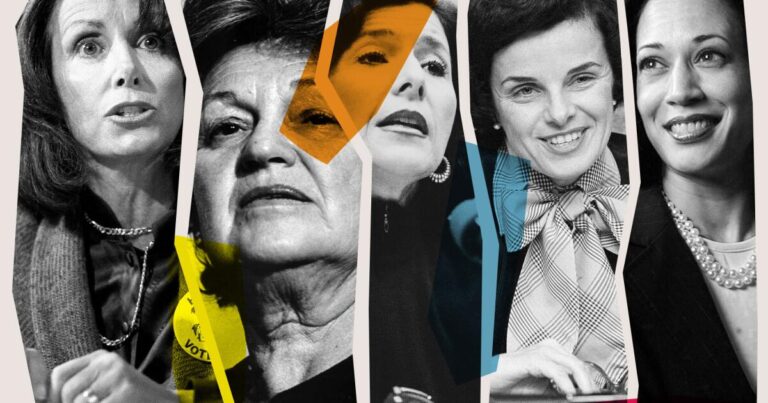San Francisco: A Catalyst for Female Political Leaders
Pioneering Women in Politics
San Francisco has emerged as a significant breeding ground for female political leaders over the past four decades. Notably, its political landscape has been shaped by figures such as Lateefah Simon, a congressional candidate and a product of the city’s diverse political environment.
Simon, who recalls her third-grade experience meeting then-Mayor Dianne Feinstein, emphasizes the inspiration derived from witnessing a woman lead the city. Despite her challenging upbringing, which included dropping out of high school and becoming a single mother at a young age, Simon was motivated by Feinstein’s message that leadership is attainable for women.
A Tradition of Trailblazers
The legacy of female leadership in San Francisco includes notable figures like Kamala Harris, who first served as California’s attorney general and has now become the first female vice president of the United States. Harris and Simon exemplify how the city has nurtured women in politics through mentorship and community engagement.
Sanne B. believes that the city’s history of female leadership is largely rooted in its acceptance of diverse backgrounds and a willingness to embrace change, as seen through the experiences of influential leaders over the decades.
Significant Milestones in San Francisco Politics
- Dianne Feinstein: Assumed office as San Francisco’s first female mayor in 1978, later becoming a powerful U.S. senator.
- Barbara Boxer: Elected to Congress in 1982, she joined Feinstein in the Senate in 1993, marking California’s status as the first state with two women in those roles.
- Nancy Pelosi: Her election to the U.S. House in 1987 paved the way for her historic role as the first female Speaker of the House.
The Political Climate in San Francisco
San Francisco’s political scene, known for its diversity and progressive values, has fostered a unique environment for female candidates. The city’s demographic complexity has allowed for a variety of voices and narratives that resonate within the electorate.
According to experts, a combination of support networks, fundraising opportunities, and a welcoming populace has positioned these women to thrive. Mindy Romero, director of USC’s Center for Inclusive Democracy, notes the unprecedented success of women from this locality in achieving high political office.
The Role of Mentorship and Support Networks
A key aspect of the success of women in San Francisco politics has been the mentorship offered by established leaders. Figures like Feinstein and Harris have opened doors for others, creating a pipeline that supports the next generation of women leaders.
As Simon states, “We grew up with women leading. That is not revolutionary anymore here. It is what should be.” This sentiment reflects a shared belief among leaders that empowering women is vital for a balanced political future.
Conclusion
With emerging candidates like Simon and established leaders like Harris continuing to shape the discourse, San Francisco remains at the forefront of female political leadership. The ongoing legacy of these women reflects their collective experience, mentorship, and the progressive political culture that defines the city.



